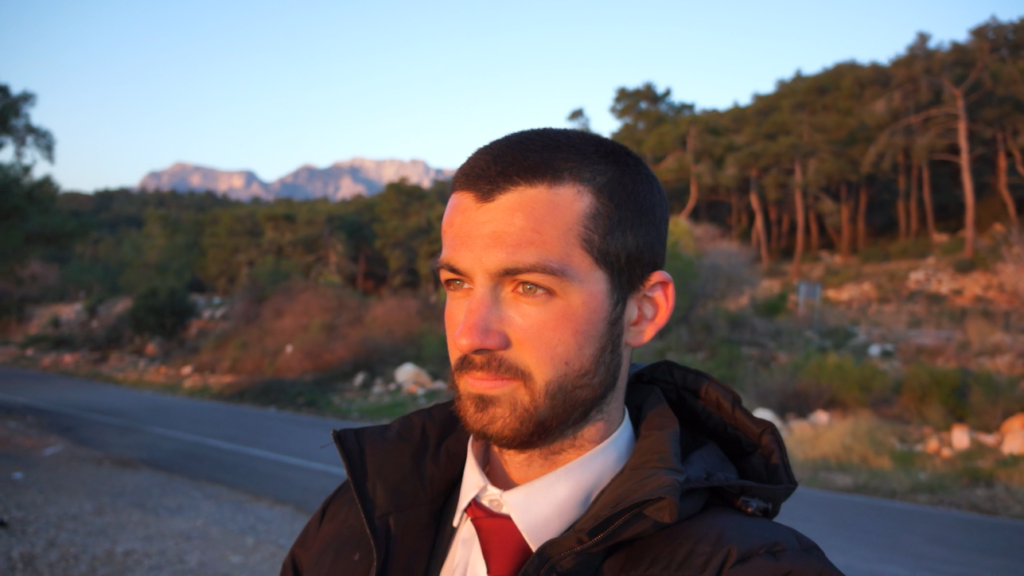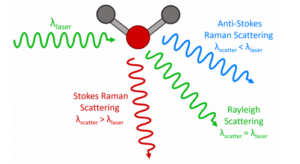Here at Edinburgh Instruments, application scientists are essential to helping our customers get the most from our products. They provide examples of proper application of our products and expert technical support to improve solutions based on customer needs.
When application scientists liaise between our company and our clients , they play a vital role in delivering our company goals and enhancing our worldwide reputation for quality and innovation.
Internally, the application scientists’ work allows us to gain invaluable customer feedback to help us continue innovating.
We chatted with Edinburgh Instruments Applications Intern Clark Gray about his accomplishments throughout University and his experience at Edinburgh Instruments.
I like discovering art in galleries, and I love languages; I’m currently learning German, Turkish and Arabic. I have a passion for travelling and meeting new people. When I can find time, I try and go to the gym. I like reading history as well and learning about music; I like old films and old documentaries, and I also enjoy stand-up comedy.
My perfect day would be waking up early, going to the gym and then meeting friends, maybe to see a show or something like that!
Clark has recently returned from walking and hitchhiking across Turkey and Bulgaria.
About five years ago, I was studying physics at St. Andrews. In my first two years, I needed to familiarise myself with what I wanted to do in physics because physics is very varied. Sometimes you’d like one area, but you hate another area. What I found interesting in physics is the modelling aspect, computer programming, and data analysis, with lots of graph work as well. I think that influenced me to go to go into spectroscopy because that’s data-heavy.
In my last year at University, my dissertation was essentially building a Raman device or chemical analysis device – the group that I was working with was interested in whisky. And so, we made a whisky analyser,
But that being said, the machine takes much training, you have to train it for days before it can do that. It was time-consuming – in this tiny little room, sharing a small bench with someone in a dark optics lab. We worked on it five days a week, 10 hours a day, dealing with class four laser, which is dangerous and very risky. But we managed to make something out of it! I am very proud of that.
In High School, one of my physics teachers mentioned Edinburgh Instruments when discussing work experience. But the level of experience you get in high school is not equivalent to what is needed here; I wasn’t ready back then, but I am now! Essentially the draw was the instruments, I knew a bit about the processes, but I did not know the scale of it and just how impressive it is. When I was taken around and shown the whole place, I thought it was awe-inspiring. Seeing the kinds of equipment that are produced here really interested me, primarily as I built a Raman device myself, so I know the work that goes into it. Then all that the business does after the manufacturing is the marketing, negotiating with a customer and working with a customer to allow customisation of the device. There are so many excellent systems here at Edinburgh Instruments that make everything go smoothly.
I graduated from St Andrews, but with the pandemic, I struggled to get a job. I went travelling to build up my intersocial skills; I was quite grateful for that; I had part-time jobs such as bar work. I went to Nigeria, Malaysia, Turkey, Bulgaria, and Abu Dhabi. I learned a lot from doing that, and learned many languages as well.
While travelling, I was applying to different Raman spectroscopy PhD positions, and a position popped up in Liverpool. They gave me an offer, and I accepted, but I knew I wasn’t ready to go straight into this; I felt I didn’t have enough training, or a big enough network, or even enough knowledge to start yet! I knew of Edinburgh Instruments and I sent an email enquiring about an intern position.
When I’ve presented things such as data I have taken to the team, they have been genuinely interested and impressed. A member of my team asked me to show them how to do something which has never happened before, someone who is in a higher position has asked me to show them how to do something. I have enjoyed the opportunity to bring something to Edinburgh Instruments. In a nutshell, just solving one problem at a time in many departments and having that good dialogue between people is excellent.
I receive some good feedback too. Whenever I present graph or data and I see someone’s eyes light up, it’s like, ‘Wow I didn’t think had that much of an impact’. Especially as when I was in University, I was doing it under somebody who had ten times or 100 times more expertise than I do. It’s refreshing to work with people with all sorts of backgrounds – social, and scientific. You are able to learn different things from each other and it makes my work feel worthwhile, I really like it here at Edinburgh Instruments in that respect.
Clark next to the RM5 Raman Microscope
Well, When I was four, I drew a picture that I have in my house of me being a subsea diver and wanting to swim with the fish. In the middle of high school, I wanted to be an architect, and then I did physics at University… what I want to do changes, but I am looking for variety in what I do.
Raman spectroscopy offers this as it’s such a diverse field, there are so many things you can do with it. Even with the applications team here, the samples that they’re getting aren’t really focused on one particular industry. For example, yesterday, we had an archaeologist with her sample, which was a piece of wood from a shipwreck in Croatia. Today, the same scientist that worked on that sample yesterday is working on organic dyes and crystals, a completely different industry. I think that is what’s good about EI, you could be in the same company, but you’re not doing the same thing over and over again.
Well, when I built my device, half of me was sick of looking at it, and the other half thought, ‘I’ve done this thing. And I built it from scratch I achieved the ultimate goal’ – to solve the problem, and I’m proud of that.
Teleportation! It would just make everything easier, and I like to travel. However, the more superhero movies I see, the more I realise superpowers may not be as good as we think they are!

No results found.
